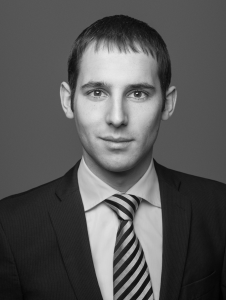Intelligent Solid-State DC Substations – Key Enabling Technologies for Future DC Grids
Abstract:
The change of the electrical supply system to more environmental-friendly energy sources requires the development of a new grid infrastructure. Local or regional balancing between loads and decentralized power generations is found to be a cost effective solution for the future electrical grids which can be realized with direct current (DC) technology. Compared to the classical AC technology, DC grids are also less prone to instabilities and more flexible to control via power-electronic based substations. The tutorial will focus on intelligent dc substations as the key enabler technology for the future flexible DC grids. Latest advances in the topology, control and real-time simulation of the bidirectional isolated DC-DC converters for interconnections of DC grids at different voltage levels as well as AC grids will be reported. Besides, the opportunities and challenges of DC grid protection with hybrid DC circuit breakers or fault-current handling DC-DC converters will be discussed.
Instructors:
Rik W. De Doncker received the Ph.D. degree in electrical engineering from the Katholieke Universiteit Leuven, Leuven, Belgium, in 1986. In 1987, he was appointed as a Visiting Associate Professor at the University of Wisconsin, Madison. In 1989, he joined the Corporate Research and Development Center, General Electric Company, Schenectady, NY. In 1994, he joined Silicon Power Corporation as the Vice President of Technology. In 1996, he became a Professor at RWTH Aachen University, Aachen, Germany, where he currently leads the Institute for Power Electronics and Electrical Drives. Since 2006, he has been the Director of the E.ON Energy Research Center, RWTH Aachen University. Dr. De Doncker is IEEE Fellow, and was the President of the IEEE Power Electronics Society (PELS) in 2005 and 2006. He was the recipient of the IEEE IAS Outstanding Achievement Award in 2002, the IEEE PES Nari Hingorani Custom Power Award in 2008, an honorary PhD from TU Riga, Latvia in 2010, the IEEE William E.Newell Power Electronics Award in 2013, and the IEEE Medal in Power Engineering in 2020.
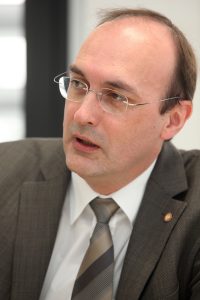
Jingxin Hu received the B.S. degree from Northeastern University, Shenyang, China, in 2010, and the M.Sc. degree and Dr.-Ing. degree both with the highest distinction (summa cum laude) from RWTH Aachen University, Aachen, Germany, in 2013 and 2019, all in electrical engineering. In 2012, he joined the ABB Corporate Research Center (CRC), Baden-Daettwil, Switzerland, as an intern. From 2013 to 2014, he worked at the High Power Electronics Laboratory at General Electric Global Research Center (GRC), Munich, Germany. Since October 2014, he joined the Institute for Power Generation and Storage Systems, E.ON Energy Research Center, RWTH Aachen University, Aachen, Germany, where he is currently a senior scientist. Dr. Hu was the recipient of Second Prize Paper Award of IEEE IPEC (ECCE Asia) in 2018 and STAWAG Dissertation Prize in 2019.
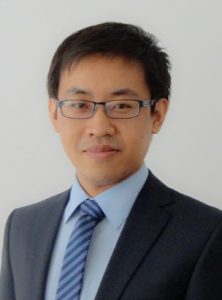
Shenghui Cui received the B.S. degree from Tsinghua University, Beijing, China, in 2012, and the M.S. degree from Seoul National University, Seoul, South Korea, in 2014, and the Dr.-Ing. degree with the highest distinction (summa cum laude) from RWTH Aachen University, Aachen, Germany, in 2019, all in electrical engineering. Since March 2015, he joined the Institute for Power Generation and Storage Systems, E.ON Energy Research Center, RWTH Aachen University, Aachen, Germany, as a research associate, where he is currently working as a senior scientist. Dr. Cui was the recipient of the STAWAG Dissertation Prize, in 2019, the Second Place Prize Paper Award of the IEEE Transactions on Power Electronics, in 2018, the Second Prize Paper Award of IEEE IPEC (ECCE Asia), in 2018, and the Outstanding Presentation Award of IEEE APEC, in 2014.
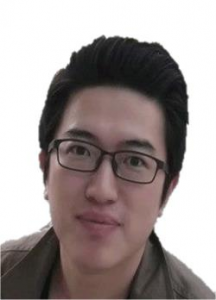
Johannes Voss studied electrical engineering from 2006-2011 at the RWTH Aachen University and joined the Institute for Power Generationand Storage Systems (PGS), E.ON Energy Research Center, RWTH Aachen University, Aachen, Germany, in 2012. In 2011, he received the Diploma degree in electrical engineering from RWTH Aachen University. In 2019, he received the Dr.-Ing. degree with the highest distinction (summa cum laude) from RWTH Aachen University. In 2015, he joined for 8 months the NSF GRid-connected Advanced Power ElectronicsSystems (GRAPES) at the University of Arkansasas as an exchange student. In 2011 he received an ABB award for an excellent Diploma thesis and in 2014 he was honored with an Excellent Paper Award at the IEEE International Power Electronics and Application Conference and Exposition. In 2019, he received the STAWAG Dissertation Prize. Dr.Voss is currently Chief Engineer at the Institute for Power Generation and Storage Systems (PGS), RWTH Aachen University.
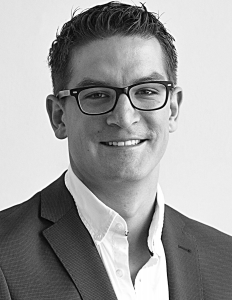
Philipp Joebges completed his Bachelor of Electrical Engineering from RWTH Aachen University, Aachen, Germany, in 2013. He received his M.Sc in Electrical Power Engineering from RWTH Aachen University, Germany, in 2016. Since April 2016, he has been working towards his doctoral degree at the Institute of Power Generation and Storage Systems (PGS), E.ON Energy Research Center, RWTH Aachen University, Aachen, Germany. His research interests include medium-voltage high-power dc-dc converters with focus on control and real-time simulation for control evaluation. Mr. Joebges is currently Chief Engineer at the Institute for Power Generation and Storage Systems (PGS), RWTH Aachen University.
